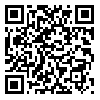Volume 14, Issue 2 (March & April 2023)
BCN 2023, 14(2): 237-246 |
Back to browse issues page
Download citation:
BibTeX | RIS | EndNote | Medlars | ProCite | Reference Manager | RefWorks
Send citation to:



BibTeX | RIS | EndNote | Medlars | ProCite | Reference Manager | RefWorks
Send citation to:
Azad O. The Relationship Between Bilingualism and Control Aspect of Intelligence: A Study of Persian-speaking Individuals. BCN 2023; 14 (2) :237-246
URL: http://bcn.iums.ac.ir/article-1-1901-en.html
URL: http://bcn.iums.ac.ir/article-1-1901-en.html
Department of Linguistics, Faculty of Humanities, University of Gonabad, Gonabad, Iran.
Abstract:
Introduction: The study of the relationship between bilingualism and the possible impact it might have on the control aspect of intelligence of adults in general and preschool children, in particular, has always been the subject of controversy for researchers. This research, following the related findings and gaps in the literature and inspired by Craik and Bialystok’s (2005) framework, tries to divulge whether bilingualism could be related to the control aspect of intelligence. As our secondary goal, we also tried to see whether there are correlations between different tests assessing control.
Methods: In this descriptive correlational study, via the convenience sampling method, we selected our participants. Methods: In doing so, 10 age-gender-matched Mazandarani-speaking monolinguals and the same matched bilinguals have been selected. Moreover, the literacy and socioeconomic status of subjects have been controlled. The tests for assessing subjects’ executive control included day-night Stroop, the dimensional change card sort (DCCS), test of variables of attention (TOVA), and the computerized attention network test (ANT). Our participants' performance in language proficiency task as well as control tasks was demonstrated. Furthermore, via the conduction of the Pearson correlation statistics, the relationships between the participants' performance in diverse control tasks and language task were investigated.
Results: The results showed that bilinguals outperform monolinguals in all control tests except DCCS.
Conclusion: Bilingualism could provide children with an executive control advantage promoting them in tasks demanding thought and action control.
Methods: In this descriptive correlational study, via the convenience sampling method, we selected our participants. Methods: In doing so, 10 age-gender-matched Mazandarani-speaking monolinguals and the same matched bilinguals have been selected. Moreover, the literacy and socioeconomic status of subjects have been controlled. The tests for assessing subjects’ executive control included day-night Stroop, the dimensional change card sort (DCCS), test of variables of attention (TOVA), and the computerized attention network test (ANT). Our participants' performance in language proficiency task as well as control tasks was demonstrated. Furthermore, via the conduction of the Pearson correlation statistics, the relationships between the participants' performance in diverse control tasks and language task were investigated.
Results: The results showed that bilinguals outperform monolinguals in all control tests except DCCS.
Conclusion: Bilingualism could provide children with an executive control advantage promoting them in tasks demanding thought and action control.
Type of Study: Original |
Subject:
Cognitive Neuroscience
Received: 2020/08/16 | Accepted: 2020/11/1 | Published: 2023/03/1
Received: 2020/08/16 | Accepted: 2020/11/1 | Published: 2023/03/1
Send email to the article author
| Rights and permissions | |
 |
This work is licensed under a Creative Commons Attribution-NonCommercial 4.0 International License. |








